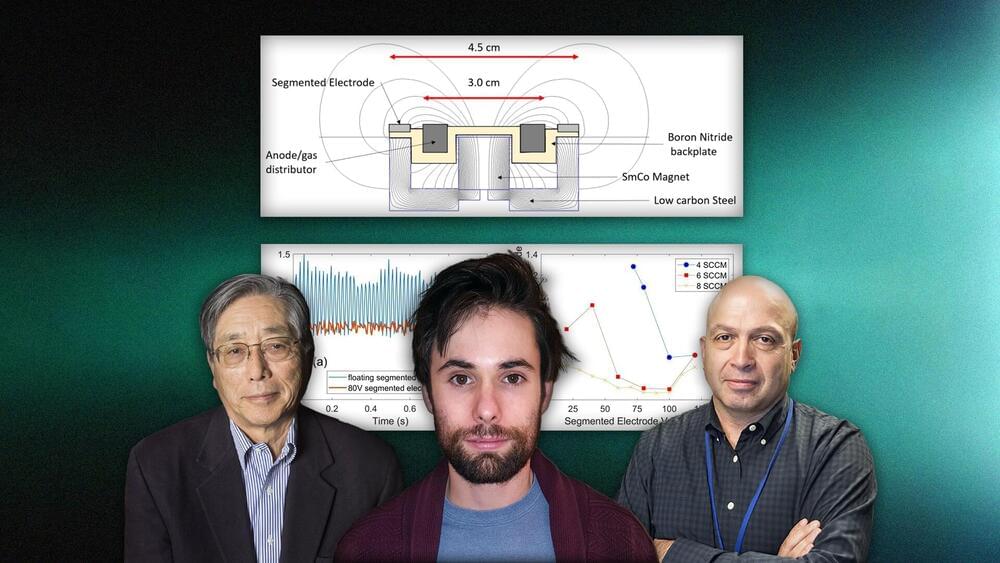The growing interest in deep-space exploration has sparked the need for powerful long-lived rocket systems to drive spacecraft through the cosmos. Scientists at the U.S. Department of Energy’s (DOE) Princeton Plasma Physics Laboratory (PPPL) have now developed a tiny modified version of a plasma-based propulsion system called a Hall thruster that both increases the lifetime of the rocket and produces high power.
The miniaturized system powered by plasma—the state of matter composed of free-floating electrons and atomic nuclei, or ions—measures little more than an inch in diameter and eliminates the walls around the plasma propellent to create innovative thruster configurations. Among these innovations are the cylindrical Hall thruster, first proposed and studied at PPPL, and a fully wall-less Hall thruster. Both configurations reduce channel erosion caused by plasma-wall interactions that limit the thruster lifetime—a key problem for conventional annular, or ring-shaped, Hall thrusters and especially for miniaturized low-power thrusters for applications on small satellites.
